COPH summer programs give students the world
From Australia to Asia and places in between, both graduate and undergraduate students had the opportunity this summer to experience public health around the globe with the USF College of Public Health (COPH).
Students traveled to London, Sydney, Panama and Japan—including Tokyo, Hiroshima and Gifu. Some of the programs were study abroad, others experiential learning. But each gave students a unique perspective and insight into the inner workings of other countries’ public health systems.
USF Public Health in Japan
Students got to witness first-hand why Japanese citizens enjoy some of the best health outcomes of any nation across the globe.
They collaborated with faculty and students from the University of Tokyo and Gifu University, the latter of which has an ongoing collaborative relationship with the COPH (MPH student Natalie Nagib was the lead author on a recently published paper looking at the mental health of Gifu University students during the pandemic).
Some highlights for students:
- Visiting an elementary school to learn how lunch is a time for teaching important skills about food portioning, table etiquette, recycling and cleaning up.
- Playing the role of patient so Gifu nursing students could practice their English.
- Learning about the immediate and long-term health consequences of nuclear weapons and disaster management practices integrated within the design of Japanese cities.
“This experience helped me understand the differences in societies and how the collective thinking of a population can determine a public health outcome. For example, at Gifu University we learned a lot about how they dealt with the COVID-19 pandemic. It was surprising that when mask mandates were in place, the people did not complain and just followed the instructions because from a young age, they are taught that their actions can affect others. We have a very individualistic mindset in the U.S. and I think that is important for public health professionals to understand because it can determine what kind of public health approach would be best,” said Isabella Abbondanza, a senior BSPH student.
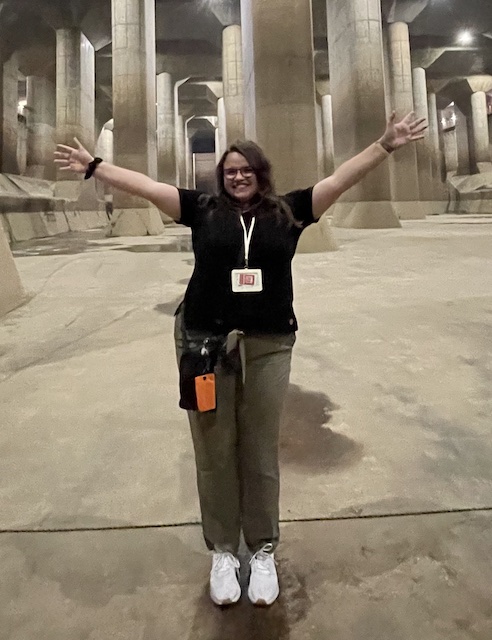
International Field Experience at Western Sydney University, Australia
An international field experience (IFE) is a practicum open to all COPH students (but mandatory for students in the global health practice concentration) and is considered an important part of the academic curriculum, serving as a structured and significant educational experience. The IFE takes place in an agency, institution or community in a developing country.
Caroline Boone, an MPH student in the global health practice concentration, said she decided to perform her IFE at Western Sydney University because the programs and projects the school was helping to lead would allow her to get hands-on experience not only working with diverse communities but also with program recruitment and implementation.
One of the projects she worked on was the Pasifika Preventing Diabetes Program (PPDP), a church-based program focusing on addressing diabetes within Pasifika communities.
“While diabetes is a burden on health worldwide, Pasifika individuals have a seven times higher risk of developing diabetes compared to those of European descent. Diabetes is also a leading cause of death in the Pasifika community. Most of our time working with the PPDP team was spent in the field assisting with data collection and participant recruitment sessions, assisting them with the surveys and obtaining their blood pressure, blood glucose, Hba1c, height, weight, percent body fat and waist circumference,” Boone said. “From the first day at this site, I felt that my opinion and input were valued and the suggestions I had were used. I never felt like I was just doing busy work for them and every task we worked on was helpful to their projects. I would recommend this experience to anyone.”
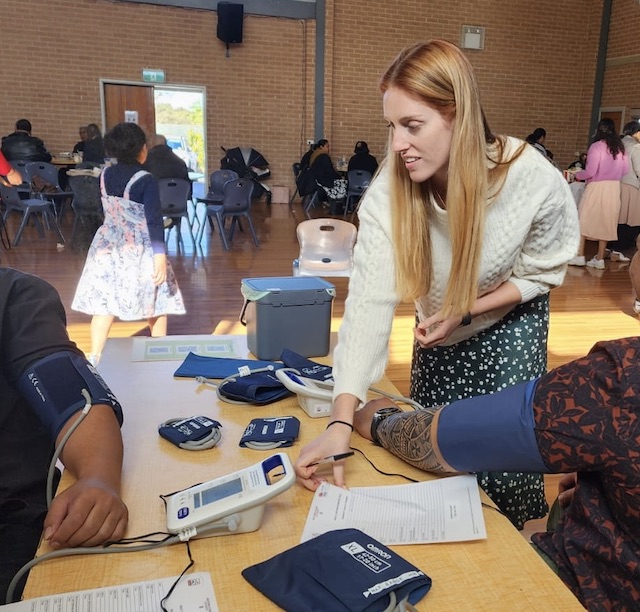
Panama Study Abroad Experience for the International Perspectives in Women’s Health Issues
This semester-long class culminated with a trip to Panama, where students examined health issues central to Panamanian women, such as access to health care, nutrition, intimate partner violence, unintended pregnancy, sexually transmitted infections, maternal mortality, and political justice and rights.
“This trip allowed me to travel and explore the cultural significance of women’s health in a case-study-like setting. Since public health is so interconnected, this trip gave me a new perspective on health issues that I can apply to my day-to-day work in clinical practice and research regarding infectious diseases. There is no better way to apply and grow your perspective than to seek out opportunities that help you experience another culture, hear the stories of another community and apply the lessons learned in your own community to improve health and social wellness,” said Shriya Bhatnagar, who earned her MPH from the COPH in summer 2023.
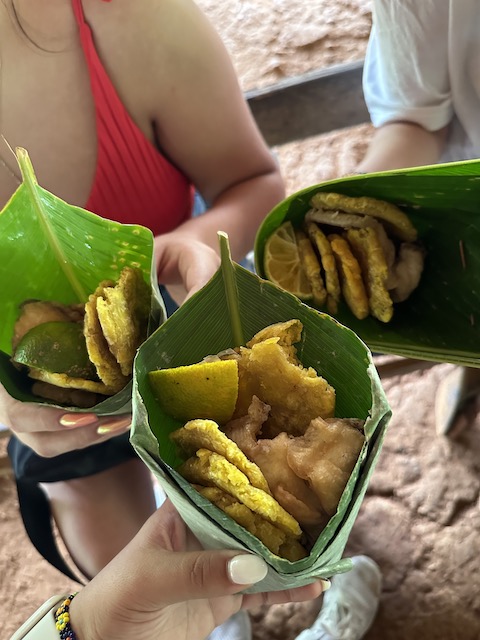
Public Health in Panama
This undergraduate course took students to various cities in Panama where they compared health systems in the U.S. to those in Panama and got an up-close look at how these systems affect health outcomes for Panamanians. Topics explored included:
- Infectious diseases
- Environmental health
- Emergency management
In addition to exploring an indigenous village and the Panama Canal, students visited the Panama Clinic, touted as the most modern hospital in Latin America, the Red Cross and a school in the rural town of Chica.
“The experience in Panama will stay with me for my whole life. As my first experience outside of the United States, it not only had a large academic impact, but a personal one, too,” commented Emma Gabinski, a senior BSPH student. “The people we interacted with and the things we were able to learn about their situations were incredibly eye-opening and will keep my love for this field alive.”
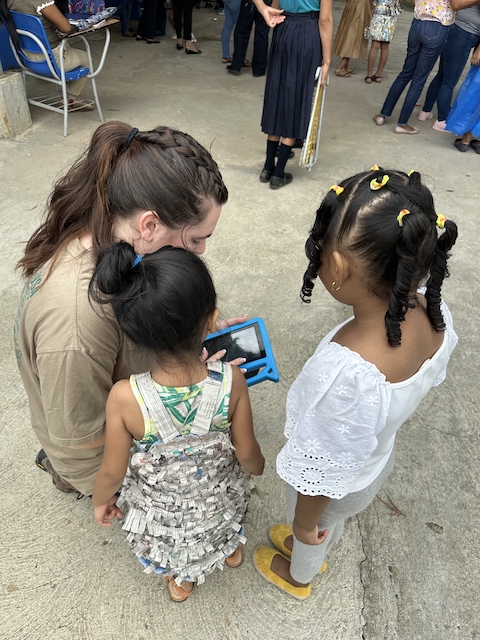
“One of the most interesting visits was touring the Red Cross in Panama. I have taken some classes in emergency management, and being able to see a Red Cross office in Panama felt especially full circle. I enjoyed hearing about the different programs that the office conducts, and we were even able to participate in one of their nationwide emergency drills while there. Being able to see and talk to an organization creating real change in the country was a big highlight,” said Nupur Kothari, a senior BSPH student.
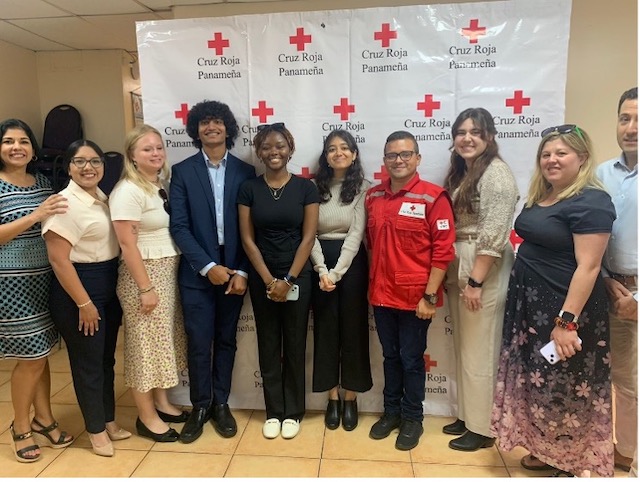
Story by Donna Campisano, USF College of Public Health
